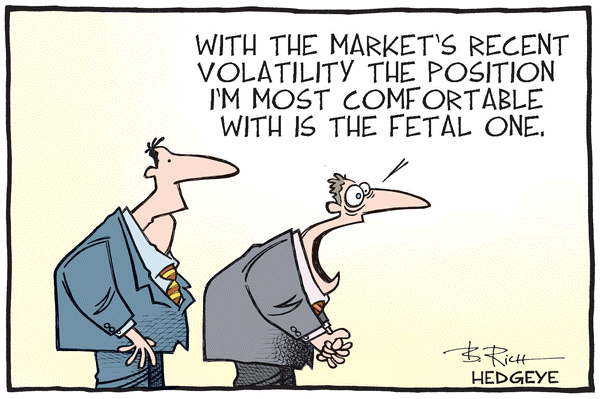Dear Valued Client,
Wealth Strategy Notes:
True to form, September was indeed a rocky month with 11 up days and nine down days on the TSX. The S&P 500 moved similarly with 11 up days, while the tech-heavy Nasdaq and Dow both finished September with 12 up days.
The volatility has extended through the first few days of October with clashing opinions on the rate of cuts by central banks after the U.S. cut their interest rates by 0.5% (from a range of 5.50-5.25% to 5.00-4.75%) when many expected only a 0.25% cut, the impact of the global economy after China introduced a broad stimulus package to boost their struggling economy, and concerns regarding the escalating war in the Middle East that may significantly impact the price of oil.
The focus on the upcoming U.S. election in November between Kamala Harris and Donald Trump is also intensifying. Most polls have Harris leading by just a hair, but after Trump’s victory in 2016, we all know how useful polls can be.
It should be stressed again that while the stock market may be more volatile in election years, the major indices have historically seen more positive returns than negative returns in election years. Our portfolios are politically agnostic; no matter who is in office, we are looking for the best investment opportunities suitable for our clients.
Overall, it continues to be a strong year for equities. To date, the TSX is up nearly 15% year-to-date. We remain steadfast investing in more reliable blue-chip companies and fixed income assets to smooth out market volatility while participating in market gains. Our Canadian Dividend, ETF and bond portfolios continue to generate regular income and dividend streams for you.

Source: Hedgeye
Further Reading:
Market volatility is caused when there is uncertainty in the direction of the markets, and it measures the overall value of a market when it moves up or down.
According to Fidelity, major stock indices typically move less than 1% per day, but over the past few years, we’ve seen increased volatility from events such as the Covid pandemic and wars in various parts of the world. Volatility can also be affected by economic news or abnormally high volumes of trading, such as the GameStop and meme stock craze.
How should investors handle volatility? Here are a few select tips from Fidelity:
1 – Keep cool and maintain perspective
“Market downturns may be nerve-rattling and unpleasant, but historically stocks tend to recover from declines and provide investors with positive long-term returns. Canadian stocks eventually recovered after dropping significantly during the global financial crises that occurred over 2008 and 2009…
Later in 2016, after the Brexit vote, U.S. stocks fell again, as they did in the run-up to the 2016 U.S. presidential election that Donald Trump ultimately won. And again in 2018, concerns about trade between the U.S. and China rattled investors, and U.S. stocks fell. Still, during this three-year period, the market was up more than 30% overall.”
2 – Don’t time the market
“There is an axiom that investors should focus on ‘time in the market over timing the market.’… Studies show the decisions investors make about when to buy and sell cause their investments to perform worse than had they simply bought and held the same funds.”
3 – Invest regularly
“If you invest regularly over months, years and decades, short-term downturns should not have much of an impact on your overall performance. Instead of trying to judge when to buy and sell based on market conditions at any given moment, you can take a more disciplined approach. This means making investments weekly, monthly or quarterly, no matter what the stock market is doing…
In fact, what have historically seemed like some of the worst times to get into the market turned out to be the best. The best five-year return in the U.S. stock market began in May 1932, which also happened to be in the middle of the Great Depression. The next best five-year period began in July 1982, when the U.S. economy was suffering through one of the worst recessions in the postwar period. Both the U.S. and Canada saw double-digit levels of unemployment and interest rates.”
If you are interested in speaking with Ron Aloni and Jason Chen regarding your current financial situation, or perhaps know someone who we may assist, we would be pleased to help. Referral of friends and family is the greatest compliment you could give us.
Please visit us at alonigohwealth.com or contact call us by phone 604-658-3056 or email raloni@leede.ca.
Best Regards,
Ron Aloni / Jason Chen
External links are provided as a convenience and for informational purposes only; they do not constitute an endorsement or an approval by Leede Financial Inc. of any of the products, services or opinions of the corporation or organization or individual. Leede Financial Inc. bears no responsibility for the accuracy, legality or content of the external site or for that of subsequent links.
This commentary is intended for information purposes only and does not constitute an offer to buy or sell our products or services nor is it intended as investment and/or financial advice on any subject matter and is provided for your information only. Every effort has been made to ensure the accuracy of its contents. The views contained herein do not necessarily constitute the views of Leede Financial Inc. Leede Financial Inc. is licensed as an investment dealer in every Canadian Province and Territory and is a member of the Canadian Investment Regulatory Organization and the Canadian Investor Protection Fund.


